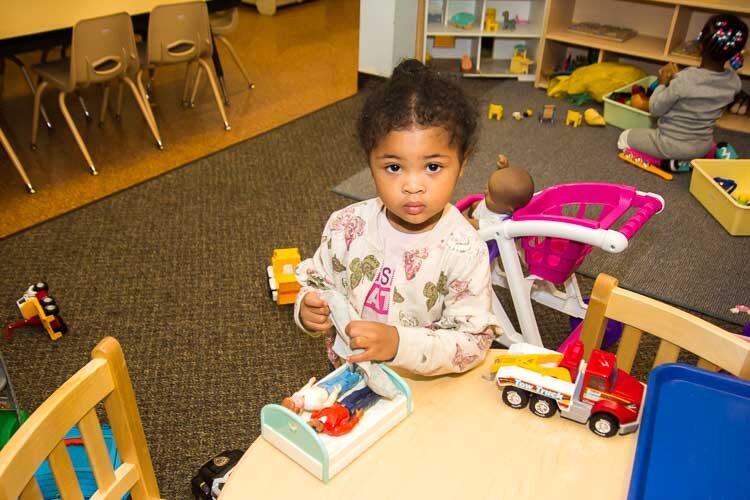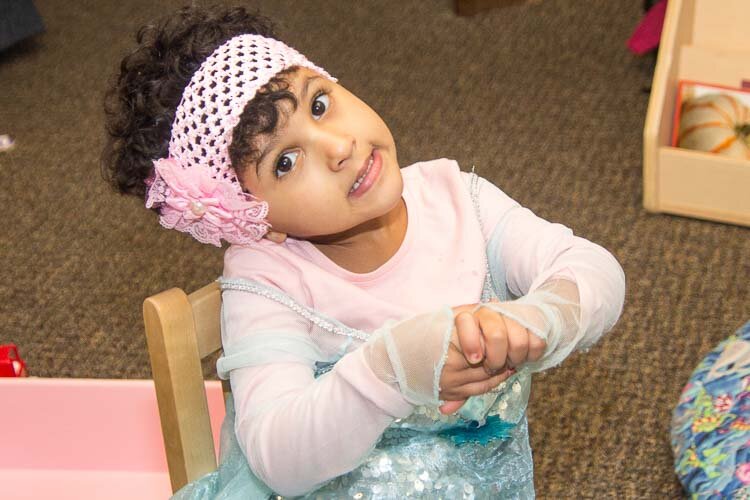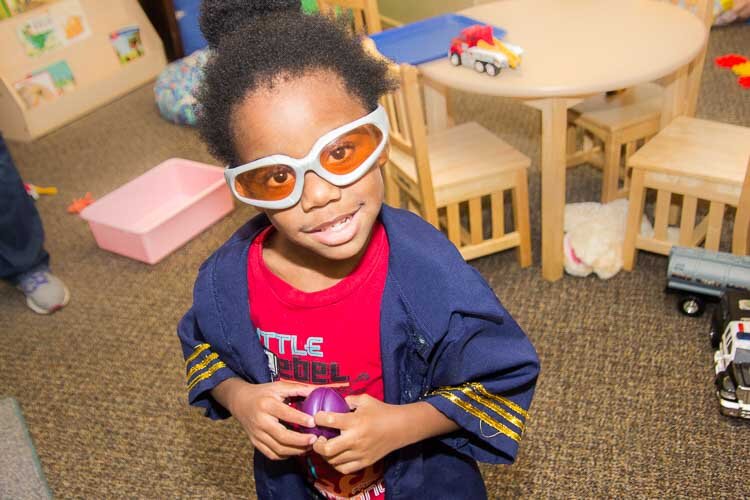Child care costs add yet another item to the list of major hardships for Michigan’s vulnerable families. But expansion and integration of childcare services – and state policy changes – could make a difference.
This article is part of State of Health, a series examining integrated care and its potential to improve Michiganders’ health. It is made possible with funding from the Michigan Health Endowment Fund.
Michigan parents with income challenges face a daily struggle as they do their best to care and provide for their children.
The most recent United Way ALICE Report numbers sadly reveal that 43% of Michigan households earn less than what they need to get by. A statewide affordable housing shortage has many families paying more than they can afford for rent, and an increasing number of them experience homelessness. As food costs rise and food assistance dollars become more difficult to access, feeding the kids means fitting trips to food pantries into an already impossible schedule. Stress multiplies when families cannot afford a car.
Child care costs add yet another item to the list of major hardships for Michigan’s vulnerable families. The Michigan League for Public Policy (MLPP) estimates that it costs $17,561 a year to have two children in a Michigan child care center.
What happens to these families when mom or dad get sick or injured? If they don’t have reliable family or friends to watch the kids, how can they afford child care so they can go to the doctor?
According to Kathy McNinch, executive director of the Kalamazoo Drop-In Child Care Center, most child care centers don’t even offer drop-in care. For the past 29 years, this Kalamazoo program has offered free, drop-in child care to families with income challenges. Parents, and sometimes grandparents, use their time off for health care appointments, seeking housing, job interviews, or a much-needed nap.
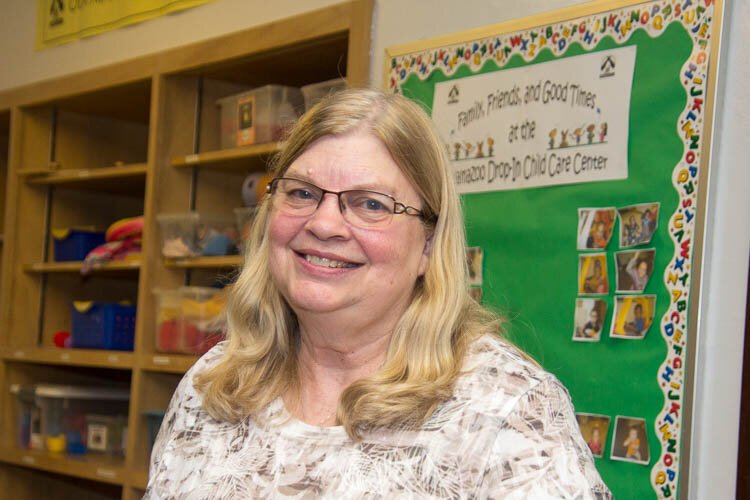
McNinch believes the Kalamazoo program is the only one of its kind in Southwest Michigan. She cites funding as the main obstacle to the model’s replication. (Kalamazoo’s First Congregational Church provides free space to the grant-funded program.)
“When my children were little, I could leave them with a neighbor if I had an appointment I needed to go to. For young families nowadays, it’s really hard, whether you’re low-income or not, to find that person who is safe and can care for your child for a few hours,” McNinch says. “Low-income families receiving various social services often have many appointments, as well as a lot of stress. One of our main goals is to reduce stress. When parents are stressed, their children are stressed. Chronic stress is really damaging to young children.”
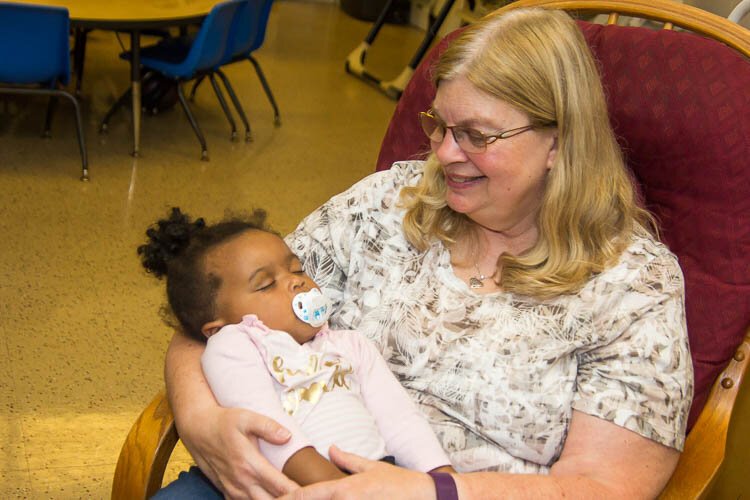
Parents can access the center’s services up to six times a month and reserve space up to two weeks in advance. The center usually operates at full capacity with a waiting list. McNinch would like to see more communities using the center’s successful model.
“Our service gives low-income parents time needed to attend medical and other appointments while their children are cared for in a safe, educationally rich environment,” McNinch says. “This gives peace of mind for their parents. It would be great to have more services like ours available for all families who do not have extended family or friends to care for their children when they have medical appointments.”
Matt Gillard is president and CEO of Michigan’s Children, an independent, statewide organization working for public policies that serve children’s best interests. He applauds employers and service businesses, like gyms, that offer on-site child care.
“Access to quality, affordable child care is a burden for families in many aspects and certainly when they are seeking care for medical health, behavioral health, or mental health care,” he says. “Having child care options available for clients of medical or behavioral health care providers could make a lot of sense.”
Missed doctor’s appointments put people at a significant risk for mortality, especially patients with mental health conditions. Missed appointments also cost health care systems an estimated $150 billion each year. When people skip preventive care or follow-up care for chronic conditions, the care they will need later on will cost a lot more.
Many parents opt to bring kids with them to their health care appointments. Even when prepared with activities, snacks, and favorite toys, the results can include chaos in the waiting room, frustrated providers, and traumatized kids — depending on the nature of the visit. An Oklahoma State University pilot study found that patients with children in the room cannot focus on the important information and care instructions their doctors share — and their health suffers for it.
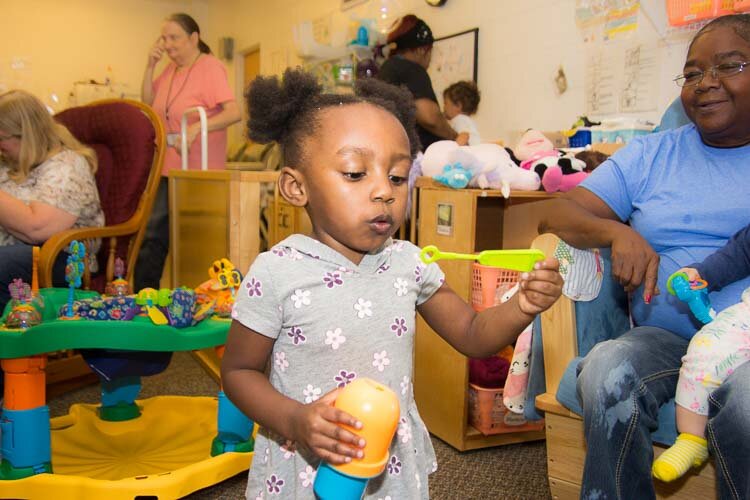
As Michigan communities and health care systems embrace an integrated health care approach that clusters medical, mental health, and social services appointments within the same timeframe and location, including child care in that mix could reduce costs, relieve stress, and improve outcomes.
Amber Bellazaire, MLPP health policy analyst, says current state policy limits Michigan residents’ access to affordable, quality child care. From 2003 to 2013, the number of Michigan families receiving state aid for child care costs dropped from 62,000 to 16,000 – a 73% decline. That mirrored a steep drop in combined state and federal spending on child care, from nearly $500 million in 2003 to a low of $107 million in 2015.
In Michigan, people receiving child care subsidies must have incomes at or below 130% of the federal poverty level. That rate is far lower than the national average; according to Gillard, many states are setting eligibility cutoffs at more than 200%. Michigan’s lower rate discourages growth in the number of child care centers and private providers.
“Broadly speaking, the policies we’re advocating for are for affordability and access to high-quality child care,” Bellazaire says. “This includes families who need to access care on short notice.”
There are positive signs in child care funding. After a decade-plus of decline, combined state and federal spending for child care has rebounded considerably since 2015’s low. And last year, Congress approved a funding increase for the Child Care Development Block Grant, with Michigan receiving $63.5 million in additional funding each year.
However, as a recent MLPP publication noted, Michigan has so far committed “only a small percentage” of those funds. Because Michigan has one of the lowest income eligibility thresholds in the nation, MLPP is advocating for increasing the income eligibility cutoff so more families have help paying for child care costs. It also advocates for increasing child care subsidies so that child care businesses can increase quality of care.

MLPP also wants the state to establish grants and contracts with providers to provide more child care access in areas with shortages, including options for parents who work weekends, evenings, or uncertain schedules, as well as those with special needs children.
“The cost and lack of access keeps forcing families into difficult choices when going to a doctor’s appointment, pursuing mental health care, or entering the workforce. The cost of child care has gotten as high as the mortgage payment or college costs,” says Alex Rossman, MLPP communications director. “The idea that folks would be delaying care that they need, that they are going to get worse, ultimately is not a cost-effective approach. Having people not treat conditions when they need to is not cost-effective or morally right.”
A freelance writer and editor, Estelle Slootmaker is happiest writing about social justice, wellness, and the arts. She is development news editor for Rapid Growth Media, communications manager for Our Kitchen Table, and chairs The Tree Amigos, City of Wyoming Tree Commission. Her finest accomplishment is her five amazing adult children. You can contact Estelle at Estelle.Slootmaker@gmail.com or www.constellations.biz.
Photos by Susan Andress.


